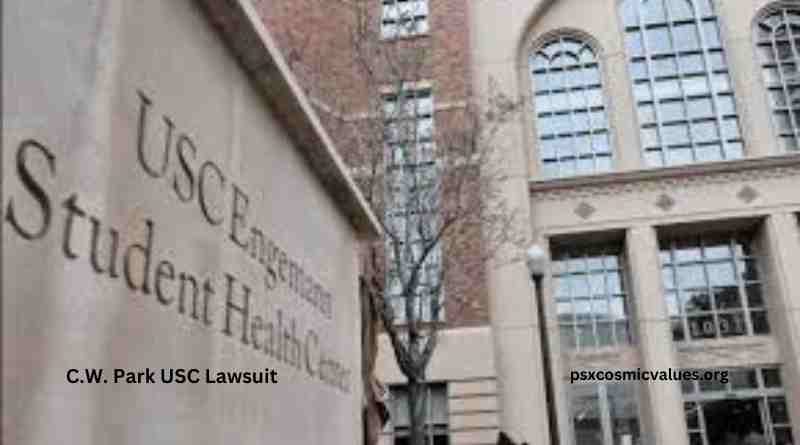Introduction
In the realm of academia and its intersection with legal battles, the C.W. Park USC Lawsuit has emerged as a landmark case, attracting widespread attention from legal experts, scholars, and the general public alike. This lawsuit has not only raised significant questions about academic freedom, employment practices, and contractual obligations but also has shone a light on the intricate dynamics within prestigious institutions. This article aims to dissect the complexities of this lawsuit, offering a comprehensive analysis of its background, legal arguments, implications, and the broader impact on the academic community.
The Genesis of the Lawsuit
Background and Allegations
The saga begins with Chong-Woo Park, a distinguished professor and a revered figure in the field of marketing at the University of Southern California (USC). Known for his extensive research and contributions to consumer behavior and branding strategies, Park’s professional journey took an unexpected turn, leading to the legal confrontations that are at the center of this discourse.
In essence, the C.W. Park USC Lawsuit was initiated by Park against USC, alleging wrongful termination, breach of contract, and a series of grievances that underscored potential violations of academic tenure policies and procedures. The lawsuit, filed in a court of competent jurisdiction, delineated a series of events that Park claimed constituted unfair treatment and ultimately culminated in his dismissal from the university under contentious circumstances.
The Legal Grounds
Park’s legal team presented a multifaceted argument, grounding their case in several key allegations. Firstly, they argued that USC failed to adhere to its own tenure policies, which are designed to protect academic freedom and ensure that faculty dismissals are conducted fairly and based on just cause. Furthermore, they alleged that the university’s actions constituted a breach of contract, given that tenured faculty members, such as Park, are afforded certain protections and guarantees under their employment contracts.
The University’s Defense
In response, USC mounted a vigorous defense, asserting that the university’s actions were justified and within the bounds of legal and contractual obligations. They argued that the decision to terminate Park’s employment was based on legitimate grounds that were consistent with university policies and the terms of his employment contract. Furthermore, USC sought to emphasize the procedural fairness of their actions, detailing the steps taken to ensure that Park was afforded due process.
Legal and Ethical Implications
Academic Freedom and Tenure
At the heart of the C.W. Park USC Lawsuit is the principle of academic freedom, a cornerstone of higher education that allows scholars to pursue research, teaching, and expression without undue interference or fear of retribution. The lawsuit has prompted a renewed examination of how academic freedom is protected, especially in cases where it intersects with employment law and institutional policies.
Contractual Obligations and Employment Law
Another critical aspect of this case revolves around the interpretation and enforcement of contractual obligations between universities and their faculty. The lawsuit raises important questions about the nature of these contracts, the extent of protections they offer to tenured professors, and how disputes over these contracts are resolved within the legal system.
Broader Impact on the Academic Community
The C.W. Park USC Lawsuit extends beyond the immediate parties involved, offering valuable lessons and cautionary tales for academic institutions, faculty members, and the governing bodies responsible for overseeing higher education. This section explores the potential ramifications of this legal battle on various stakeholders within the academic ecosystem.
For Academic Institutions
Universities and colleges are closely watching the outcome of this lawsuit, as it could set precedents regarding tenure policies, academic freedom, and the management of faculty employment. Institutions may need to reevaluate their policies and procedures to ensure they are both legally compliant and conducive to fostering a supportive environment for academic inquiry.
For Faculty Members
For professors, especially those with or aspiring to tenure, this lawsuit underscores the importance of understanding their rights and the protections afforded by their contracts. It also highlights the potential vulnerabilities faced by faculty, even in tenured positions, and the importance of legal recourse in disputes with their employers.
For Students and the Academic Community
The implications of this lawsuit extend to students and the broader academic community, impacting perceptions of academic integrity, the quality of education, and the values upheld by educational institutions. It raises critical questions about how disputes between faculty and administration can affect the learning environment and the institution’s reputation.
Conclusion
The C.W. Park USC Lawsuit is a complex legal battle with far-reaching implications for academia. It challenges long-standing principles of academic freedom, tenure, and the contractual relationships between faculty and institutions. As this saga unfolds, it will undoubtedly continue to spark debate and introspection across the higher education landscape, serving as a pivotal case study in the evolving dialogue between academic tradition and legal precedent.
Read also: check

